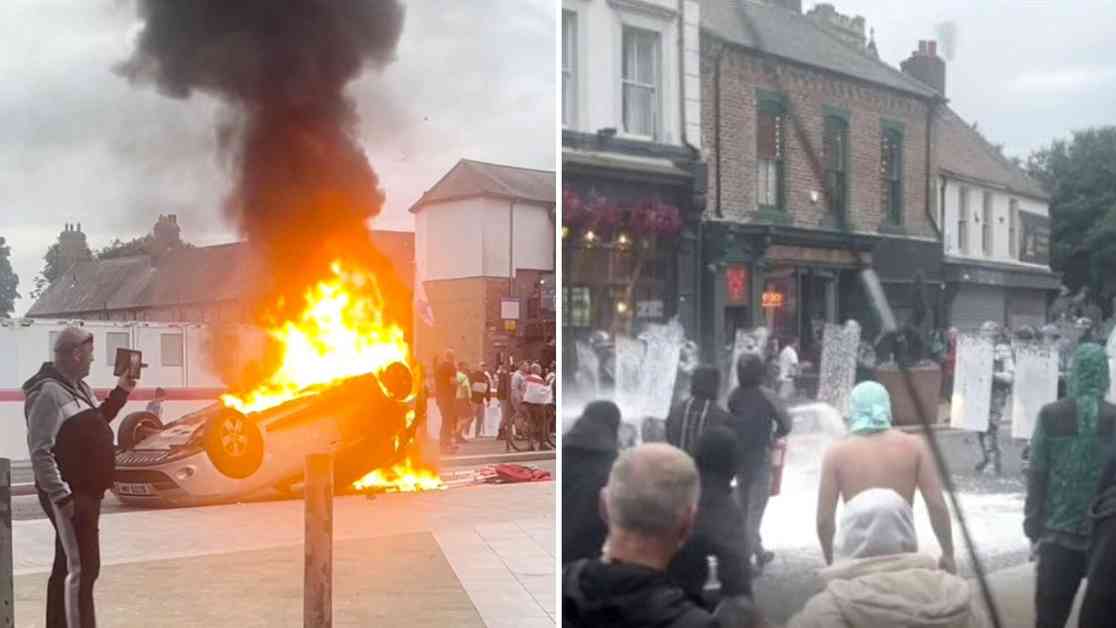Sunderland faced a night of intense violence as rioters set a police station on fire and hurled objects at officers, prompting Northumbria Police to warn the public to steer clear of the city center. The unrest erupted in response to the Southport stabbings, leaving the North East mayor, Kim McGuinness, appalled by the chaotic scenes.
The protests saw hundreds of demonstrators in Keel Square, where they clashed with the police by throwing projectiles and chanting slogans like “whose streets? Our streets.” Some of the protesters displayed England flags and voiced support for Tommy Robinson, while others made derogatory remarks about Islam during the march through the city.
Mounted police and officers in vans monitored the protesters as they moved through the streets, leading to a confrontation outside a mosque where officers were targeted with thrown objects. Complaints arose about biased policing, as officers formed a protective barrier around the mosque, sparking further tension among the protesters.
Amid the escalating violence, an overturned car was set on fire in the city center, and marchers discharged fire extinguishers at the police officers. The situation continued to be volatile as Northumbria Police reported ongoing disorder past 9 pm, emphasizing that such behavior would not be tolerated.
North East Mayor Kim McGuinness condemned the violent acts, asserting that those resorting to violence and vandalism in the face of tragedy stood for “thuggery” rather than genuine protest. She underscored that the actions of a few troublemakers did not represent the sentiments of the Sunderland community or the region as a whole.
Sunderland Central MP Lewis Atkinson echoed this sentiment, expressing full support for the police in their efforts to combat criminal behavior and safeguard all communities in the city. The protests were part of a broader trend of violent demonstrations across English towns following the Southport attack, which claimed the lives of three young girls.
The impact of social media in fueling further unrest was evident, with online posts promoting additional events in cities across the UK in the coming days, including those targeting mosques. In response, counter-protests were being organized to counter far-right demonstrations and maintain peace in the cities.
As the authorities grapple with the aftermath of the violent protests, the focus remains on restoring order, ensuring public safety, and preventing further outbreaks of violence in Sunderland and beyond. The need for unity, respect, and dialogue to address grievances and concerns in a peaceful manner is paramount in overcoming such challenges and fostering a sense of community solidarity.












